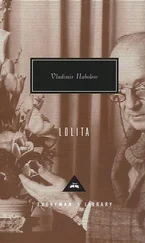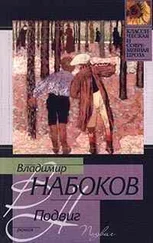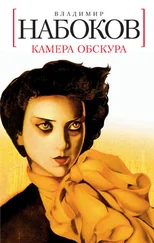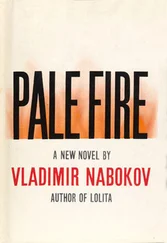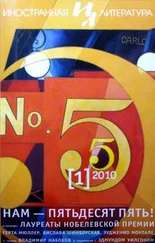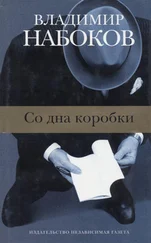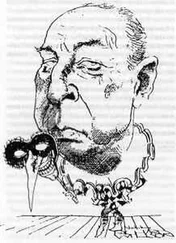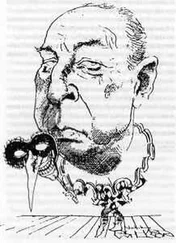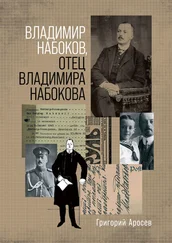Владимир Набоков - Ada, or Ador - A Family Chronicle
Здесь есть возможность читать онлайн «Владимир Набоков - Ada, or Ador - A Family Chronicle» весь текст электронной книги совершенно бесплатно (целиком полную версию без сокращений). В некоторых случаях можно слушать аудио, скачать через торрент в формате fb2 и присутствует краткое содержание. Жанр: Классическая проза, Современные любовные романы, на английском языке. Описание произведения, (предисловие) а так же отзывы посетителей доступны на портале библиотеки ЛибКат.
- Название:Ada, or Ador: A Family Chronicle
- Автор:
- Жанр:
- Год:неизвестен
- ISBN:нет данных
- Рейтинг книги:3 / 5. Голосов: 1
-
Избранное:Добавить в избранное
- Отзывы:
-
Ваша оценка:
- 60
- 1
- 2
- 3
- 4
- 5
Ada, or Ador: A Family Chronicle: краткое содержание, описание и аннотация
Предлагаем к чтению аннотацию, описание, краткое содержание или предисловие (зависит от того, что написал сам автор книги «Ada, or Ador: A Family Chronicle»). Если вы не нашли необходимую информацию о книге — напишите в комментариях, мы постараемся отыскать её.
Ada, or Ador: A Family Chronicle — читать онлайн бесплатно полную книгу (весь текст) целиком
Ниже представлен текст книги, разбитый по страницам. Система сохранения места последней прочитанной страницы, позволяет с удобством читать онлайн бесплатно книгу «Ada, or Ador: A Family Chronicle», без необходимости каждый раз заново искать на чём Вы остановились. Поставьте закладку, и сможете в любой момент перейти на страницу, на которой закончили чтение.
Интервал:
Закладка:
‘You can see the Tarn from the library window,’ said Marina. ‘Presently Ada will show you all the rooms in the house. Ada?’ (She pronounced it the Russian way with two deep, dark ‘a’ s, making it sound rather like ‘ardor.’)
‘You can catch a glint of it from here too,’ said Ada, turning her head and, pollice verso, introducing the view to Van who put his cup down, wiped his mouth with a tiny embroidered napkin, and stuffing it into his trouser pocket, went up to the dark-haired, pale-armed girl. As he bent toward her (he was three inches taller and the double of that when she married a Greek Catholic, and his shadow held the bridal crown over her from behind), she moved her head to make him move his to the required angle and her hair touched his neck. In his first dreams of her this re-enacted contact, so light, so brief, invariably proved to be beyond the dreamer’s endurance and like a lifted sword signaled fire and violent release.
‘Finish your tea, my precious,’ called Marina.
Presently, as Marina had promised, the two children went upstairs. ‘Why do stairs creak so desperately, when two children go upstairs,’ she thought, looking up at the balustrade along which two left hands progressed with strikingly similar flips and glides like siblings taking their first dancing lesson. ‘After all, we were twin sisters; everybody knows that.’ The same slow heave, she in front, he behind, took them over the last two steps, and the staircase was silent again. ‘Old-fashioned qualms,’ said Marina.
6
Ada showed her shy guest the great library on the second floor, the pride of Ardis and her favorite ‘browse,’ which her mother never entered (having her own set of a Thousand-and-One Best Plays in her boudoir), and which Red Veen, a sentimentalist and a poltroon, shunned, not caring to run into the ghost of his father who had died there of a stroke, and also because he found nothing so depressing as the collected works of unrecollected authors, although he did not mind an occasional visitor’s admiring the place’s tall bookcases and short cabinets, its dark pictures and pale busts, its ten chairs of carved walnut, and two noble tables inlaid with ebony. In a slant of scholarly sunlight a botanical atlas upon a reading desk lay open on a colored plate of orchids. A kind of divan or daybed covered in black velvet, with two yellow cushions, was placed in a recess, below a plate-glass window which offered a generous view of the banal park and the man-made lake. A pair of candlesticks, mere phantoms of metal and tallow, stood, or seemed to stand, on the broad window ledge.
A corridor leading off the library would have taken our silent explorers to Mr and Mrs Veen’s apartments in the west wing, had they pursued their investigations in that direction. Instead, a semi-secret little staircase spiraled them from behind a rotatory bookcase to the upper floor, she, pale-thighed, above him, taking longer strides than he, three steep steps behind.
The bedchambers and adjacent accommodations were more than modest, and Van could not help regretting he was too young, apparently, to be assigned one of the two guest rooms next to the library. He recalled nostalgically the luxuries of home as he considered the revolting objects that would close upon him in the solitude of summer nights. Everything struck him as being intended for a cringing cretin, the dismal poorhouse bed with a medieval headboard of dingy wood, the self-creaking wardrobe, the squat commode of imitation mahogany with chain-linked knobs (one missing), the blanket chest (a sheepish escape from the linen room), and the old bureau whose domed front flap was locked or stuck: he found the knob in one of its useless pigeonholes and handed it to Ada who threw it out of the window. Van had never encountered a towel horse before, never seen a washstand made specially for the bathless. A round looking-glass above it was ornamented with gilt gesso grapes; a satanic snake encircled the porcelain basin (twin of the one in the girls’ washroom across the passage). An elbow chair with a high back and a bedside stool supporting a brass candlestick with a grease pan and handle (whose double he had seemed to have seen mirrored a moment ago — where?) completed the worst and main part of the humble equipment.
They went back to the corridor, she tossing her hair, he clearing his throat. Further down, a door of some playroom or nursery stood ajar and stirred to and fro as little Lucette peeped out, one russet knee showing. Then the doorleaf flew open — but she darted inside and away. Cobalt sailing boats adorned the white tiles of a stove, and as her sister and he passed by that open door a toy barrel organ invitingly went into action with a stumbling little minuet. Ada and Van returned to the ground floor — this time all the way down the sumptuous staircase. Of the many ancestors along the wall, she pointed out her favorite, old Prince Vseslav Zemski (1699–1797), friend of Linnaeus and author of Flora Ladorica, who was portrayed in rich oil holding his barely pubescent bride and her blond doll in his satin lap. An enlarged photograph, soberly framed, hung (rather incongruously, Van thought) next to the rose-bud-lover in his embroidered coat. The late Sumerechnikov, American precursor of the Lumière brothers, had taken Ada’s maternal uncle in profile with upcheeked violin, a doomed youth, after his farewell concert.
On the first floor, a yellow drawing room hung with damask and furnished in what the French once called the Empire style opened into the garden and now, in the late afternoon, was invaded across the threshold by the large leaf shadows of a paulownia tree (named, by an indifferent linguist, explained Ada, after the patronymic, mistaken for a second name or surname of a harmless lady, Anna Pavlovna Romanov, daughter of Pavel, nicknamed Paul-minus-Peter, why she did not know, a cousin of the non-linguist’s master, the botanical Zemski, I’m going to scream, thought Van). A china cabinet encaged a whole zoo of small animals among which the oryx and the okapi, complete with scientific names, were especially recommended to him by his charming but impossibly pretentious companion. Equally fascinating was a five-fold screen with bright paintings on its black panels reproducing the first maps of four and a half continents. We now pass into the music room with its little-used piano, and a corner room called the Gun Room containing a stuffed Shetland pony which an aunt of Dan Veen’s, maiden name forgotten, thank Log, once rode. On the other, or some other, side of the house was the ballroom, a glossy wasteland with wallflower chairs. ‘Reader, ride by’ ( ‘mimo, chitatel’,’ as Turgenev wrote). The ‘mews,’ as they were improperly called in Ladore County, were architecturally rather confusing in the case of Ardis Hall. A latticed gallery looked across its garlanded shoulder into the garden and turned sharply toward the drive. Elsewhere, an elegant loggia, lit by long windows, led now tongue-tied Ada and intolerably bored Van into a bower of rocks: a sham grotto, with ferns clinging to it shamelessly, and an artificial cascade borrowed from some brook or book, or Van’s burning bladder (after all the confounded tea).
The servants’ quarters (except those of two painted and powdered maids who had rooms upstairs) were on the courtyard side of the ground floor and Ada said she had visited them once in the explorative stage of her childhood but all she remembered was a canary and an ancient machine for grinding coffee beans which settled the matter.
They zoomed upstairs again. Van popped into a watercloset — and emerged in much better humor. A dwarf Haydn again played a few bars as they walked on.
The attic. This is the attic. Welcome to the attic. It stored a great number of trunks and cartons, and two brown couches one on top of the other like copulating beetles, and lots of pictures standing in corners or on shelves with their faces against the wall like humiliated children. Rolled up in its case was an old ‘jikker’ or skimmer, a blue magic rug with Arabian designs, faded but still enchanting, which Uncle Daniel’s father had used in his boyhood and later flown when drunk. Because of the many collisions, collapses and other accidents, especially numerous in sunset skies over idyllic fields, jikkers were banned by the air patrol; but four years later Van who loved that sport bribed a local mechanic to clean the thing, reload its hawking-tubes, and generally bring it back into magic order and many a summer day would they spend, his Ada and he, hanging over grove and river or gliding at a safe ten-foot altitude above surfaces of roads or roofs. How comic the wobbling, ditch-diving cyclist, how weird the arm-flailing and slipping chimney sweep!
Читать дальшеИнтервал:
Закладка:
Похожие книги на «Ada, or Ador: A Family Chronicle»
Представляем Вашему вниманию похожие книги на «Ada, or Ador: A Family Chronicle» списком для выбора. Мы отобрали схожую по названию и смыслу литературу в надежде предоставить читателям больше вариантов отыскать новые, интересные, ещё непрочитанные произведения.
Обсуждение, отзывы о книге «Ada, or Ador: A Family Chronicle» и просто собственные мнения читателей. Оставьте ваши комментарии, напишите, что Вы думаете о произведении, его смысле или главных героях. Укажите что конкретно понравилось, а что нет, и почему Вы так считаете.

